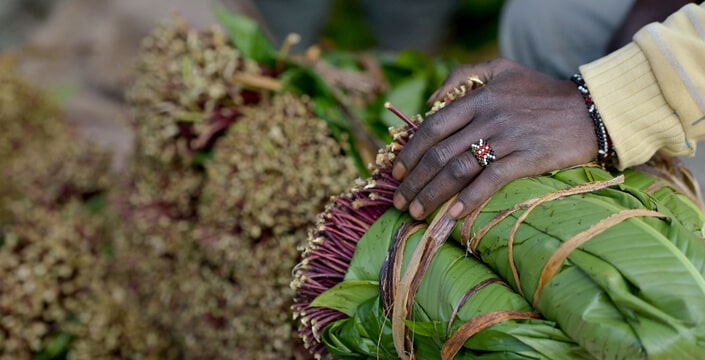Khat exporters in Ethiopia face a business slowdown following a new deal signed between the governments of Kenya and Somalia. Ethiopia had a comparative advantage for the last two years after the Somalia government placed a ban on Khat imported from Kenya, with no reason given during the suspension.
A protracted maritime boundary dispute has strained relations, and Somalia has accused Kenya of interfering in its internal affairs. Nairobi has countered by accusing Mogadishu of using it as a scapegoat for its own political and security problems.
The new Somalia President, Hassan Sheikh Mohamud, reversed the decision, soon after the outgoing Kenyan President Uhuru Kenyatta attended the inauguration of Mohamud, ending the frosty relations under the previous government in Mogadishu.
Last week, Business Daily reported that Kenya had exported USD 2.2 million worth of Miraa (Khat) within four days after the official lifting of the suspension. While this is a big win for traders in Kenya, the story is different for their counterparts in Ethiopia.
“It is now a peak season and we expect exports to grow, not decline, which is happening right now,” said Fahmi Abdulmajid, an exporter of Khat. “In my experience, demand fell by 50 percent from Somalia, which is shocking to say the least.”
Ethiopia exported almost USD 392 million worth of Khat during the last fiscal year, exhibiting almost no change from the previous year, though it is USD 100 million higher than the figure registered before Somalia placed a ban on Kenya’s khat.
Last week, Kenya exported a record-high 81.4 tons of Khat to Somalia. If Kenyan traders continue with this pace, Fahmi fears Ethiopia may see a decline in export proceeds from Khat this year.
“I was exporting six tons per day. But as the demand is declining so fast, volume is likely to fall significantly, which comes at a difficult time when the harvesting season begins,” said Fahmi.
Authorities believe Ethiopia is not benefiting much from the growing Khat market in the Horn. The central bank recently doubled the minimum price for khat to USD 10 a kilo, though the decision has been reversed after Djibouti placed a ban on imports from Ethiopia.
Officials at the Ministry of Trade & Regional Integration (MoTI) also introduced a contract farming system in the sector, but that was suspended too over fears that exports would decline as importers in neighboring countries opposed the move.
“We have not received any complaints from traders thus far and we believe they can compete very well with their Kenya counterparts, irrespective of the lifting of the ban,” said Kassahun Gofe, state minister for MoTI. “There is nothing we can do, fearing competition with neighboring countries.”
Kenyan traders now charge six to eight dollars for a kilo of Khat, while it is one dollar less in the case of Ethiopia.
The Oromia Regional State is the top producer of khat with 1.3 million quintals yearly, followed by the South and Sidama Regional States, with 650,000 quintals a year each.




















Discussion about this post